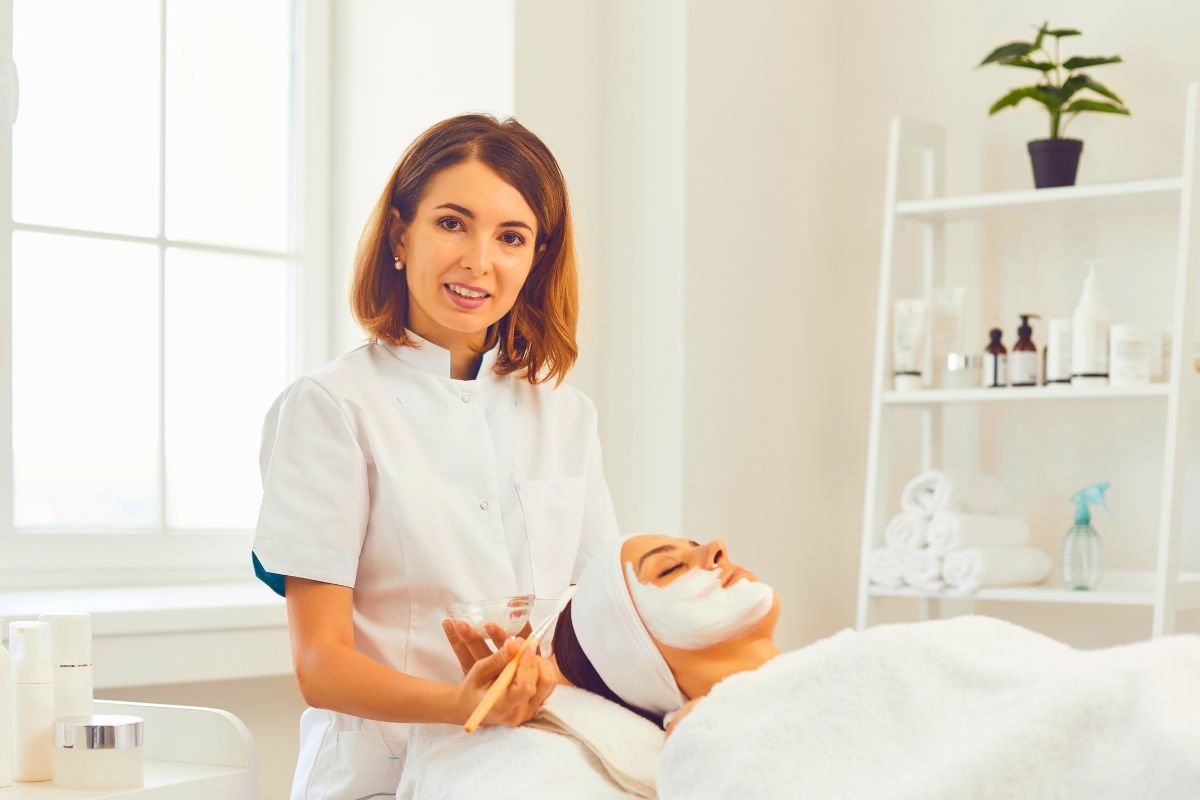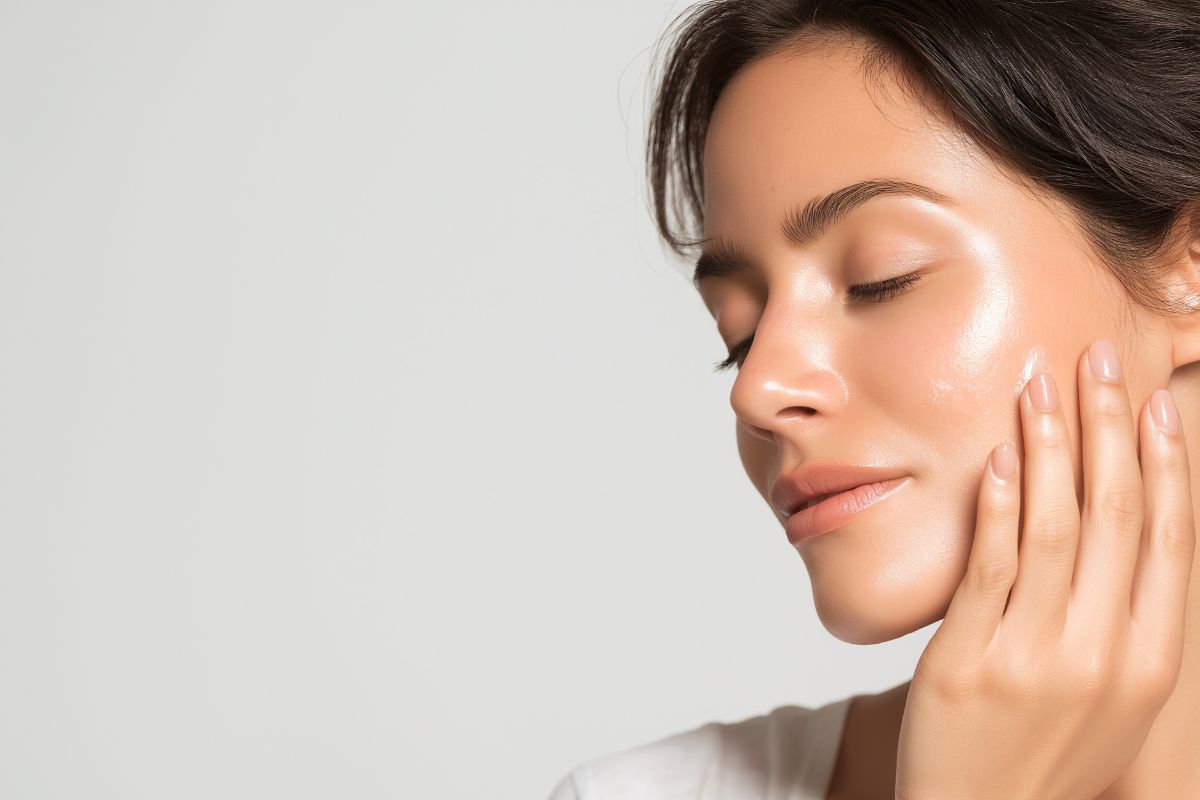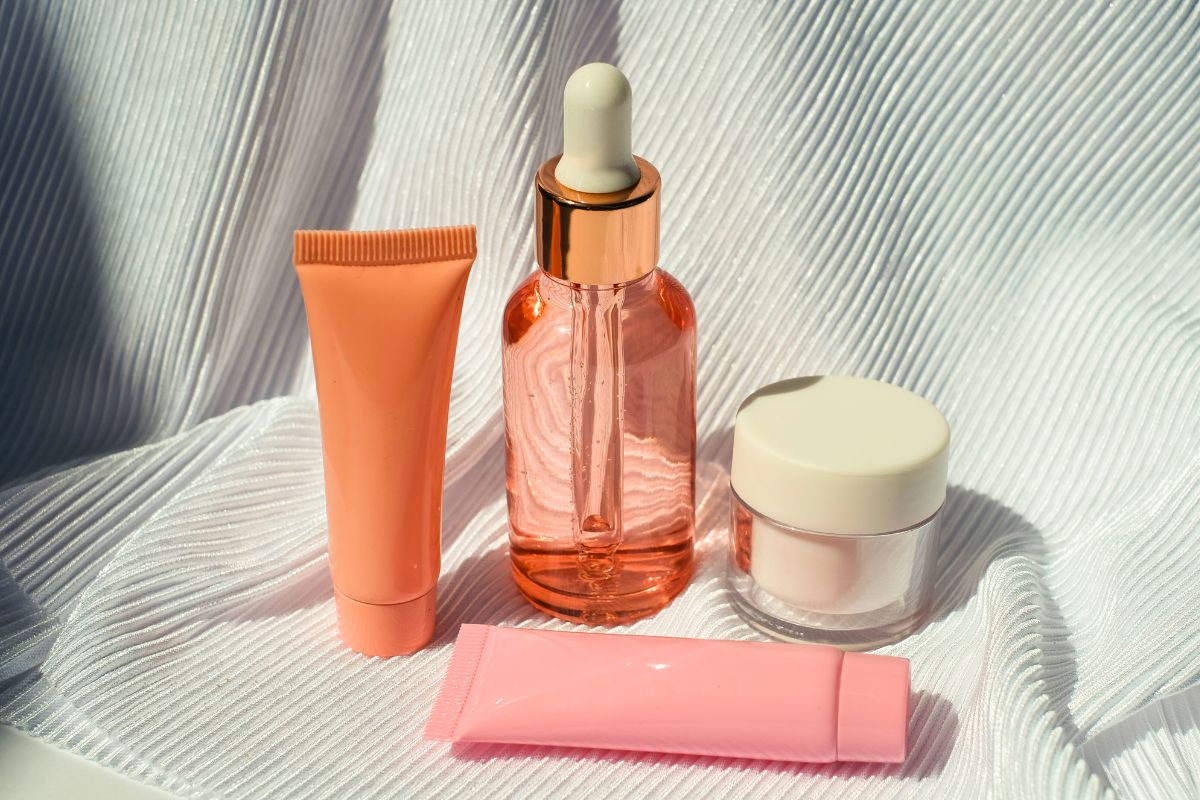Tretinoin Vs Retinol: The Truth About Their Skin Benefits
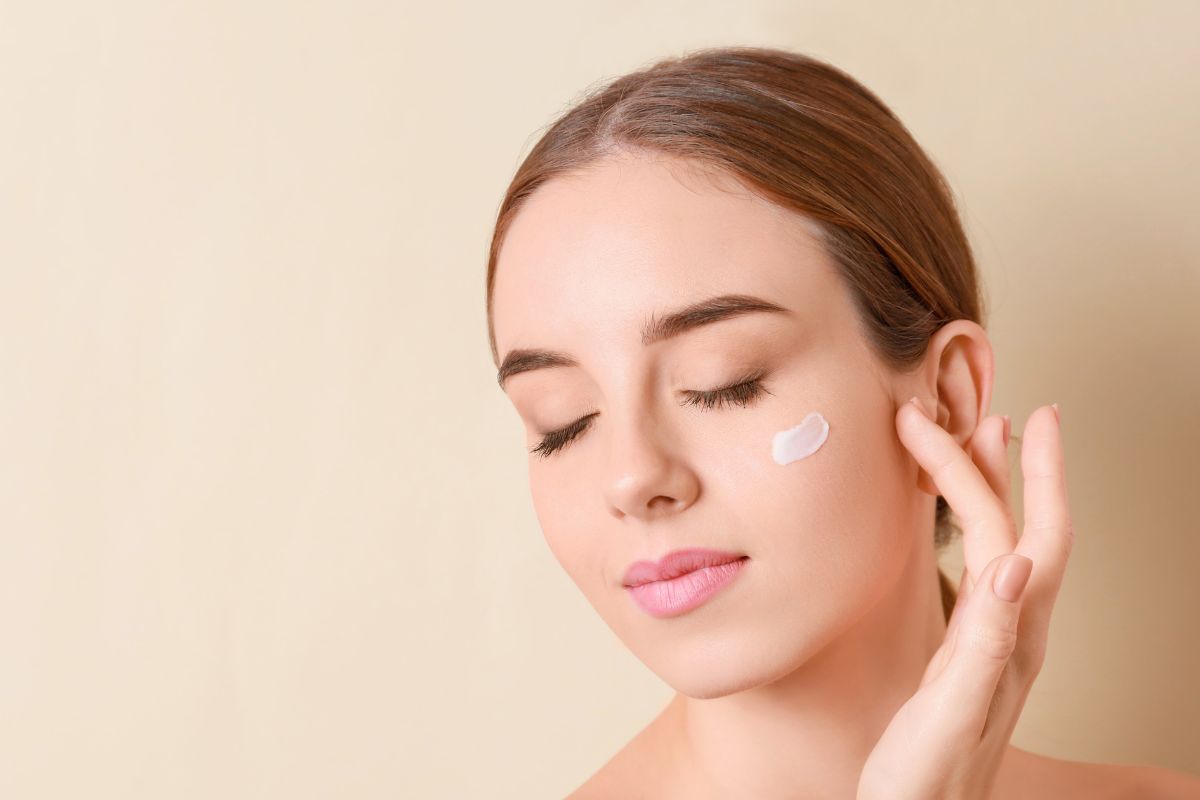
Published September 18, 2025
You’ve likely seen countless skincare products promising smoother skin, fewer wrinkles, and a glowing complexion. Yet, amidst the hype, few ingredients genuinely deliver like retinoids. These vitamin A derivatives are skincare powerhouses, but they come in many forms. This often leads to confusion, especially when it comes to the popular debate of tretinoin vs retinol. Both belong to the vitamin A family. However, they differ in potency, speed, and availability. These differences can impact your results. Knowing these nuances is key to unlocking the right benefits for your skin.
In this article, we’ll explore the tretinoin vs retinol debate, looking into their benefits, side effects, and best uses. By the end, you’ll have all the information you need to make a confident, informed decision for your skincare routine.
What Are Retinoids?
To start our comparison, it’s essential to first understand the overarching category of retinoids, to which both tretinoin and retinol belong.
Defining Retinoids—The Vitamin A Family
Retinoids are chemical compounds obtained from vitamin A, an essential nutrient for healthy skin. In skincare, retinoids speed up skin cell turnover and stimulate collagen production. This helps smooth the skin, minimize wrinkles, and keep pores clear. While tretinoin and retinol are both retinoids, they work differently on the skin.
What Is Tretinoin?
Tretinoin is a synthetic, prescription-strength vitamin A derivative. The FDA approved it in 1971 as a topical acne treatment. It’s a powerful and highly effective retinoid, available as a cream or gel only with a doctor’s prescription. As an FDA-approved drug, its efficacy is supported by extensive clinical studies.
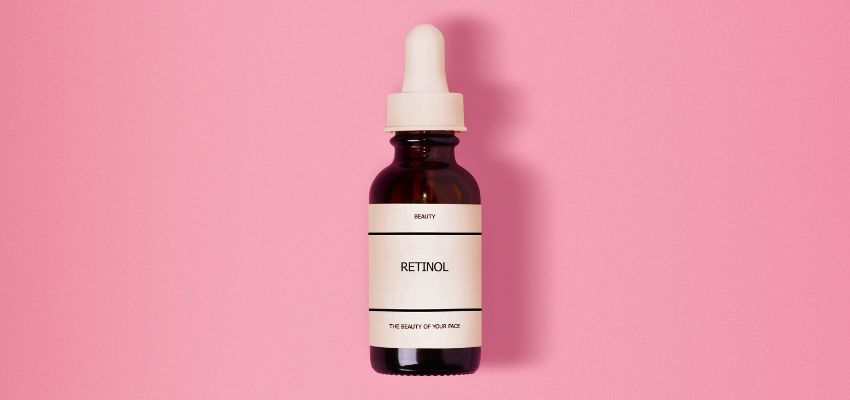
What Is Retinol?
Retinol is the natural form of vitamin A present in many over-the-counter (OTC) products like creams, serums, and lotions. Because it’s a cosmeceutical, not a drug, it doesn’t undergo the same strict regulation and testing as tretinoin. Retinol is ideal for those new to retinoids or with sensitive skin.
Retinol Conversion Vs. Tretinoin’s Active Form
The primary difference lies in their chemical forms. Tretinoin is retinoic acid, the active form directly usable by skin cells. This accounts for its rapid and potent effects.
Conversely, retinol requires a two-step conversion within the skin to become retinoic acid. This conversion process makes retinol milder and slower-acting than its prescription-strength counterpart.
Mechanisms Of Action: Retinol Vs Tretinoin
Both ingredients bind to retinoid receptors in skin cells, but they differ in potency and speed of action.
Cellular Turnover And Collagen Production
Both tretinoin and retinol prompt skin cells to accelerate their lifecycle. This boosts cellular turnover, shedding old skin cells faster and revealing new ones. They also stimulate collagen production, which enhances skin firmness and elasticity. This combined action reduces fine lines, smooths texture, and even skin tone over time.
Speed Of Results: Tretinoin Vs Retinol For Wrinkles
Tretinoin, in its active form, delivers noticeable improvements in wrinkles and skin texture within a few months. Retinol, requiring conversion, produces similar results more slowly, making its effects more gradual.
Penetration, Strength, And Potency Differences
Tretinoin can be up to 20 times more potent than retinol due to its higher potency and bioavailability, making it highly effective for moderate to severe acne and significant sun damage, but with a higher risk of irritation. Retinol, milder due to its conversion process, is often better tolerated.
Skin Conditions That Retinoids Can Treat
Retinoids are powerful ingredients that effectively target various common skin concerns.
- Acne and breakouts. Tretinoin is a trusted prescription for moderate to severe acne. It works by unclogging pores, reducing breakouts, and preventing new blemishes. Retinol can help mild acne by boosting cell turnover. Tretinoin is better for persistent or inflammatory cases.
- Fine lines, wrinkles, and aging. Both tretinoin and retinol are effective anti-aging treatments that boost collagen and accelerate cell renewal, reducing fine lines and wrinkles. Tretinoin’s greater potency often means faster, more noticeable results.
- Sun damage, uneven tone, and texture. Both retinoids can improve skin tone, texture, and sun damage. They help shed pigmented cells faster. This fades dark spots and discoloration. The result is a brighter, more even complexion.
Have resilient skin? Facing stubborn acne or deep wrinkles? Your dermatologist might suggest tretinoin. If your skin is sensitive or you’re new to retinoids, start with over-the-counter retinol. It’s also good for prevention and mild improvements.
Side Effects And Safety Considerations
Retinoids are effective, but they need an adjustment period, often called “retinization.”
Common Side Effects
Starting retinoids involves an adjustment period called “retinization,” which can cause typical side effects.
- Irritation, dryness, and peeling: Expect some redness, dryness, peeling, or a feeling of tightness. Tretinoin is more potent, so its effects are stronger. Retinol causes milder irritation.
- Post-inflammatory hyperpigmentation: Some people may get dark spots. This is more common for those with darker skin. It happens because of initial irritation.
Management
To minimize the side effects, consider these measures:
- Gradual introduction: Start by applying your retinoid only a few nights a week. This allows your skin to steadily build tolerance, reducing the likelihood of intense irritation. Increase the frequency as your skin adjusts.
- Moisturize strategically: Incorporate a gentle, fragrance-free moisturizer into your routine. Applying a moisturizer can combat dryness and peeling. The “sandwich method” (moisturizer, retinoid, then moisturizer again) works well for sensitive skin.
Who Should Avoid Retinoids?
Retinoids are not suitable for pregnant or breastfeeding women. If you have sensitive skin or conditions like rosacea, eczema, or psoriasis, consult a dermatologist first. These ingredients may worsen inflammation.

How To Use Retinoids Effectively
Proper retinoid application is crucial for the best results and minimal irritation.
Frequency And Concentration: Start Low, Build Up
Begin with a low concentration, applying the product 2-3 times per week. A pea-sized amount is enough for the entire face. As your skin adapts, gradually increase to nightly use if tolerated.
Timing And Application
Retinoids break down in sunlight, reducing their effectiveness. Always apply them at night to clean, dry skin. Wait a few minutes after washing your face before applying to lessen irritation.
Complementary Skincare: Moisturizers And Sunscreen
Your daytime routine is crucial. Retinoids increase sun sensitivity, so daily use of a broad-spectrum sunscreen with SPF 30 is essential. Always pair retinoids with a hydrating moisturizer to support your skin barrier and reduce dryness.
Tretinoin Vs Retinol: Which Is Right For You?
Choosing between tretinoin and retinol depends on your skin goals, tolerance, and lifestyle.
Skin Goals: Wrinkles, Acne, Or Brightening
For aggressive acne or significant anti-aging goals, tretinoin may offer faster and more dramatic results. Retinol is better for preventative care, mild texture improvement, and general brightening, and is more accessible over the counter. Match your specific needs to each ingredient’s strengths.
Skin Tolerance And Lifestyle
Consider both your skin’s sensitivity and your lifestyle. Tretinoin has stronger effects and typically requires a prescription, so it suits those who can manage medical regimens and want faster results. Retinol is milder and available over the counter, making it more convenient and gentler for beginners or sensitive skin.
Cost, Prescription, And Results
Tretinoin may be more affordable if covered by insurance and usually delivers results faster. Over-the-counter retinol products vary in price and tend to provide results more gradually, requiring consistency and patience. Compare expected speed, cost, and access when deciding.
Frequently Asked Questions
Is tretinoin better than retinol for wrinkles?
Tretinoin is more effective and faster for wrinkles and aging. It works directly to boost collagen and cell turnover, since it’s already active. Retinol can also improve fine lines, but usually needs longer, consistent use for similar effects.
Can retinol deliver results like tretinoin?
Retinol can enhance skin texture and tone, and reduce fine lines, but it doesn’t match the potency or speed of tretinoin. For mild or early signs of aging, retinol might suffice, but for more noticeable or faster results, tretinoin is often the better option.
How long until I see results?
With tretinoin, visible changes appear within 6–12 weeks, but full results may take several months. Retinol users often see better skin texture and brightness. This usually happens after three months. The benefits continue to increase over time.
Can I use both together or alternate?
Using both at the same time is usually unnecessary and may increase the risk of skin irritation. Most dermatologists recommend sticking to one retinoid to allow your skin to adjust. If considering alternating products, consult your dermatologist for a regimen that minimizes irritation.

Unlocking The Power Of Tretinoin Vs Retinol For Your Skin
Both tretinoin and retinol improve skin health, but they differ in strength. Tretinoin is a powerful treatment for acne and severe photoaging. It works faster and is more effective. However, it requires a prescription and may cause irritation. Retinol provides a gentler, gradual approach, perfect for beginners, sensitive skin, or long-term use. Your choice in the tretinoin vs retinol debate depends on your individual needs. Consult a dermatologist for personalized advice to choose the right product for healthy, glowing skin.
While retinoids like tretinoin and retinol can transform your skin, professional guidance often yields the best results. At Salon Suites of Wellington, you might find skincare specialists and beauty professionals who can help achieve healthy, glowing skin.
Rent Salon Space In Wellington Florida
Rent salon space in Wellington with us. Whether you’re a hairstylist, nail technician, or any other beauty professional, we provide the ideal environment to help your business thrive. Our Wellington salon suites offer a wide range of benefits, including complimentary cleaning services, flexible lease terms, and a welcoming atmosphere designed to make your clients feel at home. Elevate your career and build your brand by leasing salon space in Wellington.

About The Author
Meet Rei Bayucca, a professional writer and passionate expert in all things related to beauty. Every article is purposely designed to assist you in tackling your most challenging dilemmas. Rei’s knack for creating engaging content is guaranteed to ignite your curiosity.
